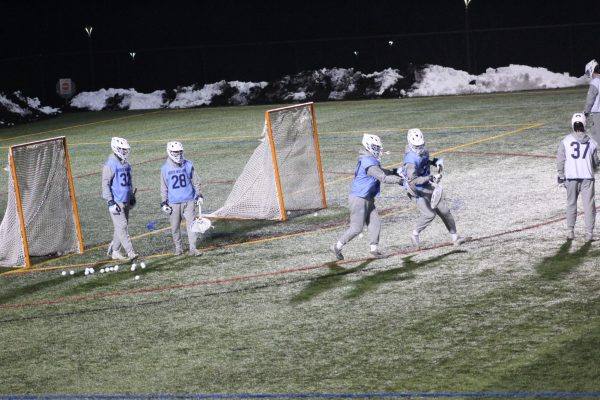Load management strikes early in the NBA season
Just over a week ago, the Milwaukee Bucks faced the Los Angeles Clippers in front of the big Hollywood lights. The matchup was billed for a faceoff between two MVP candidates, Giannis Antetokounmpo and Kawhi Leonard, who battled each other in a six game series in the 2019 Eastern Conference Finals.
However, a key piece to the puzzle was missing, as Leonard did not play. According to team doctors, he was “nursing a knee injury.” The game, which happened to be the last of a back-to-back stretch for the Clippers, is the second time this season Leonard has not played the last half of a back-to-back.
In recent years, teams in the NBA have come under fire for not playing their star players in some games, in order to help with “load management.” Essentially, teams follow through with this strategy in order to keep players fresh after an 82 game season for a whole new season in the NBA Playoffs, which happen mid-April.
The NBA season is an absolute grind, so it is understandable that players would miss some games due to injury. But why do they choose to sit out during some of the most anticipated regular season matchups fans look forward to watching?
“I think it’s an effective strategy. If you look at the data, players are lasting longer,” said RWU senior Bryan Donovan, an avid NBA fan.
“The biggest critics of it are Michael Jordan and Larry Bird, and they had shorter careers than players are having today.”
In terms of the fan perspective, Donovan had different thoughts.
“As a fan I don’t really like it, because obviously fans pay money and you want to see guys compete,” Donovan said. “But you also have to look at it that it has benefits too, and it can help players last longer. So it goes both ways.”
As for the specific case of Leonard, who has missed games very early into the season, Donovan aligned with his perspective of being a fan.
“I don’t like it. Look at a guy like LeBron [James] who is in his 17th year. His minutes are higher than Kawhi’s and he is not taking nights off,” Donovan said.
According to hoopshype.com, from 1967 to 2004, 12.8 percent of NBA players played all 82 games. This past season, only four percent of players achieved the feat, with only two all-star players, Kemba Walker and Bradley Beal, doing so.
Throughout the history of the NBA, rules have been put in place to avert certain strategies. Such rules include the installment of the 24 second shot clock to keep teams from “freezing” the ball, or the “Hack a Shaq” rule, where teams can be penalized in the last two minutes of a quarter for intentionally fouling poor free throw shooters off the ball.
With that being said, it will certainly be interesting to see how the NBA continues to respond to the controversial “load management” predicament they face.
About the Writer





